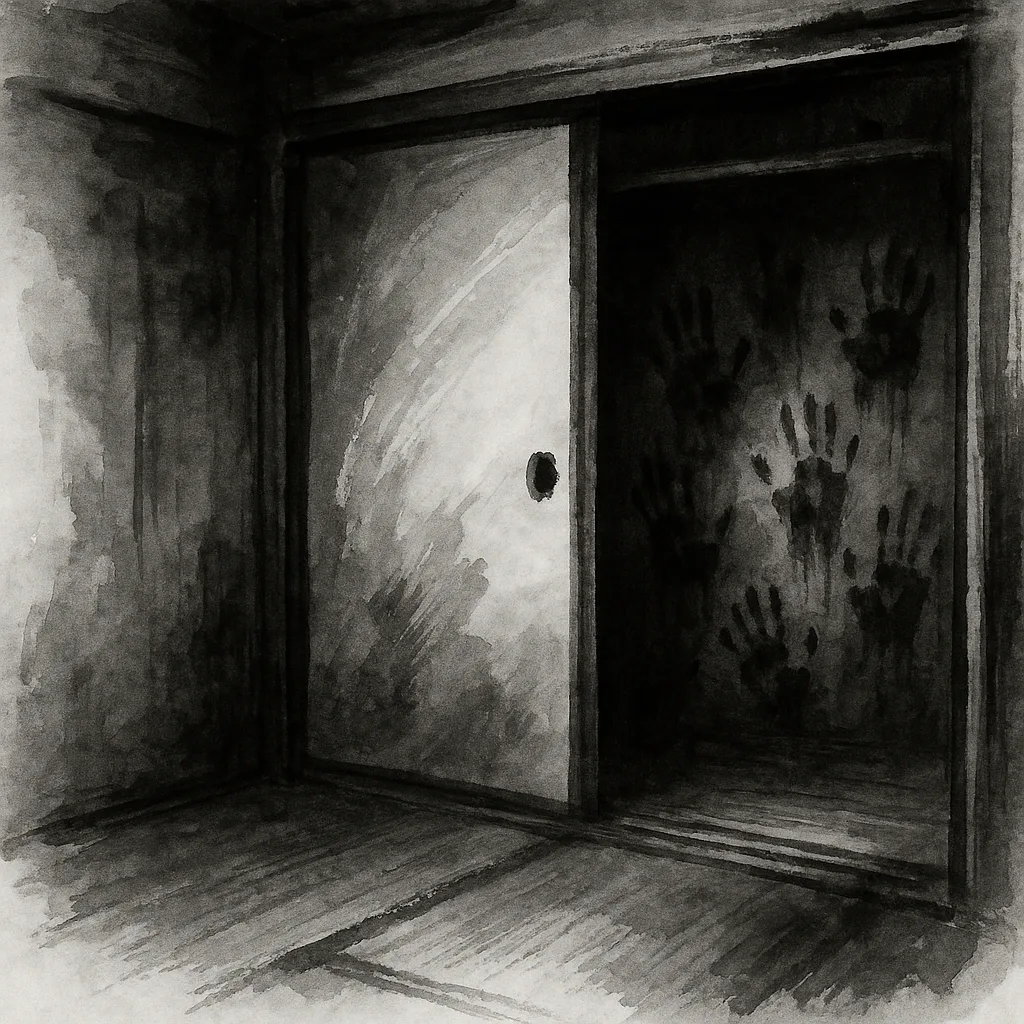This is the account of a foreign couple who booked an old apartment in Japan through a rental app.
—You wish to hear it, then.
So be it… but keep your light close.
The apartment stood on the border between a busy downtown area and a quiet residential neighborhood.
Convenient, yes—but somehow it felt out of place.
On the first night, still buzzing with excitement from sightseeing, they laughed and made noise late into the evening.
Suddenly, there came a loud thumping on the wall.
“Don, don, don,”
They ignored it at first—until the doorbell rang.
At the door stood a Japanese woman.
She spoke quickly, clearly angry, though they could not understand her words.
With a stern glare, she turned and walked away.
They understood only her expression.
She was furious.
Inside, they noticed the house rules posted by the host:
“Be quiet at night.”
It seemed that the banging on the wall had been a warning before the woman came in person.
Chastened, they decided to stay quiet.
But travel always brings excitement.
The following night they forgot themselves, grew lively again—and this time, the police arrived.
The neighbors had reported them,
and the officers gave a strict warning.
In Japan, you see, loud noise at night is not tolerated.
Neighbors often call the police directly, who will come in person to scold the offenders.
In apartment buildings especially, knocking on the wall is a clear signal from the neighbor:
“Be quiet.”
Ignore it, and you invite serious trouble.
On the third night, they resolved to behave.
The couple kept quiet, and the woman soon fell fast asleep.
But not long after, the man heard it again—
Don. Don. Don.
It went on and on, until irritation replaced fear.
“We’re not making any noise… what are they doing next door?”
Half-angry, he stepped onto the balcony to peer into the neighboring unit, and even pressed its doorbell.
But the apartment looked empty.
There were no lights, no signs of life —
almost as if no one lived there at all.
Confused and frustrated, he returned to his room.
Yet the pounding continued.
Listening closely, he realized with a chill:
The sound was not coming from the next apartment.
It was coming from inside the closet.
In Japanese apartments, there is often a large built-in closet called an oshiire.
From within it came the pounding,
as though something trapped inside was desperate to get out.
“Could a cat or dog have gotten in somehow?
” With trembling hands, he slid the door open.
The closet was empty.
He turned on his phone’s flashlight,
swept the beam across the interior —
— and his legs gave way.
Covering the entire inside wall were countless handprints.
They were smeared and pressed from the inside,
dark red and black, as though made of dried blood.
He screamed, stumbled back, and struck his head.
Darkness swallowed him.
And as his consciousness faded, he saw her—
A woman, drenched in blood,
glaring at him with a face twisted in furious rage.
“Wake up! What are you doing sleeping here on the floor?”
The next morning, his partner shook him awake.
He babbled about the pounding, the closet,
the bloody handprints.
But she had slept soundly through the night.
And when they checked the closet,
the walls were perfectly clean.
No stains, no marks, nothing at all.
She told him it must have been a dream.
But he knew it wasn’t.
The memory tormented him even after they returned home. Later, he confided in a friend,
who happened to know a Japanese acquaintance.
“There’s a website in Japan,” the acquaintance explained,
“that lists the history of properties—especially if someone has died there. Shall I check for you?”
The report came quickly.
That apartment, years ago,
had been the scene of a murder over a noise dispute.
The victim’s body had been hidden in the closet for several days.
The killer?
A woman who lived next door.
She left a note of confession before taking her own life in her apartment.
His heart froze.
The furious woman he had seen—there could be no mistake.
And the first night, when an angry woman had come to his door…
had that really been a living neighbor?
The unit next door had looked abandoned.
The thought chilled him to the bone.
All he could do was pray that at least
the tenants above and below him had been alive.
Even in busy, popular neighborhoods of Japan,
apartments where murders or suicides occurred are branded as jiko bukken—
“stigmatized properties.”
They are avoided by buyers and renters,
and so, more often than not,
they end up quietly listed as short-term rentals for unsuspecting travelers.
One never knows what kind of room they may be staying in.
You would be wise… to take care.
Leave the light on, if you can.
Shadows linger after stories like this.
We will meet again… when you are ready to hear another.
Heh… heh…
